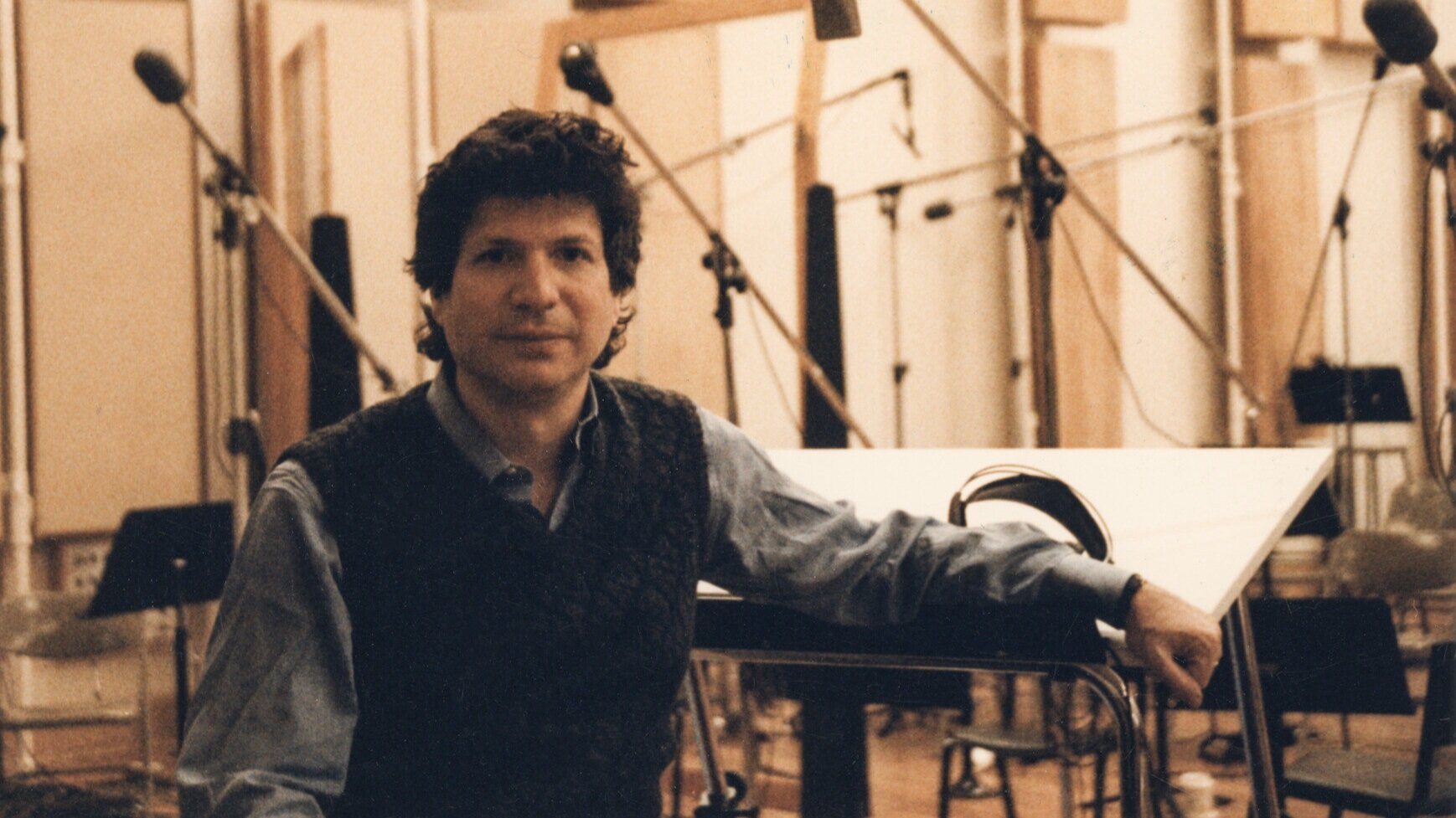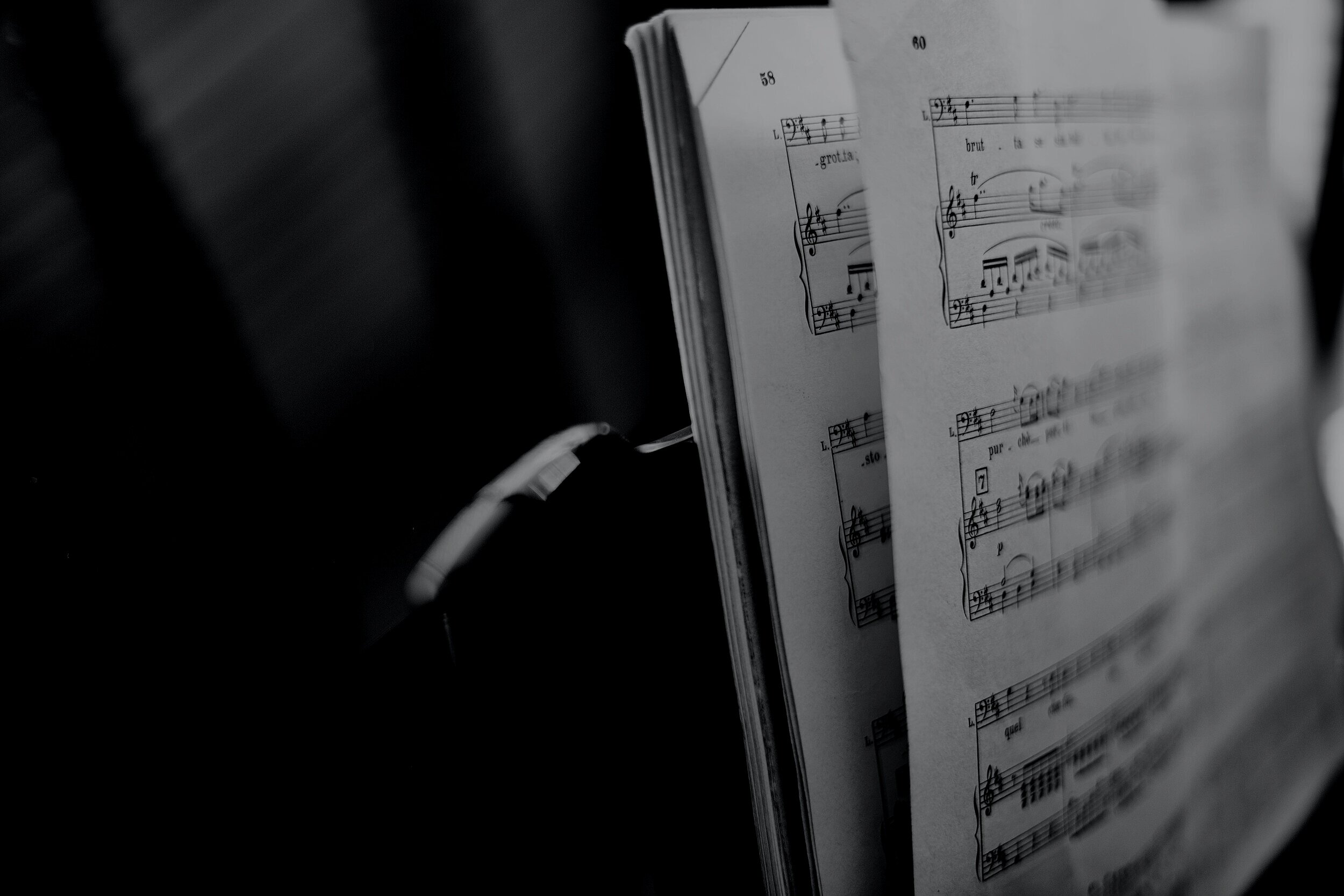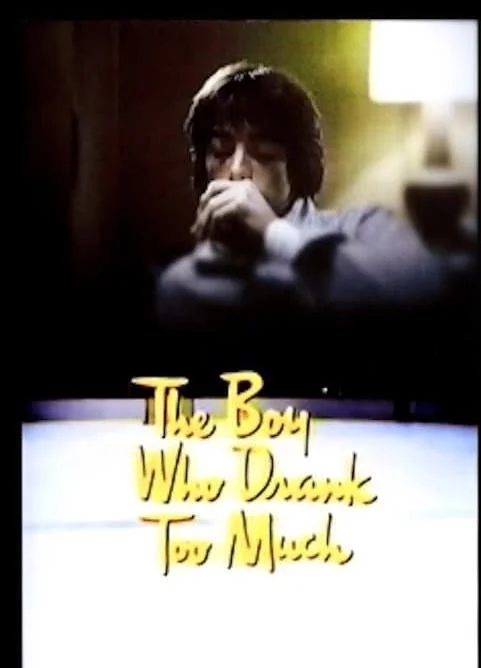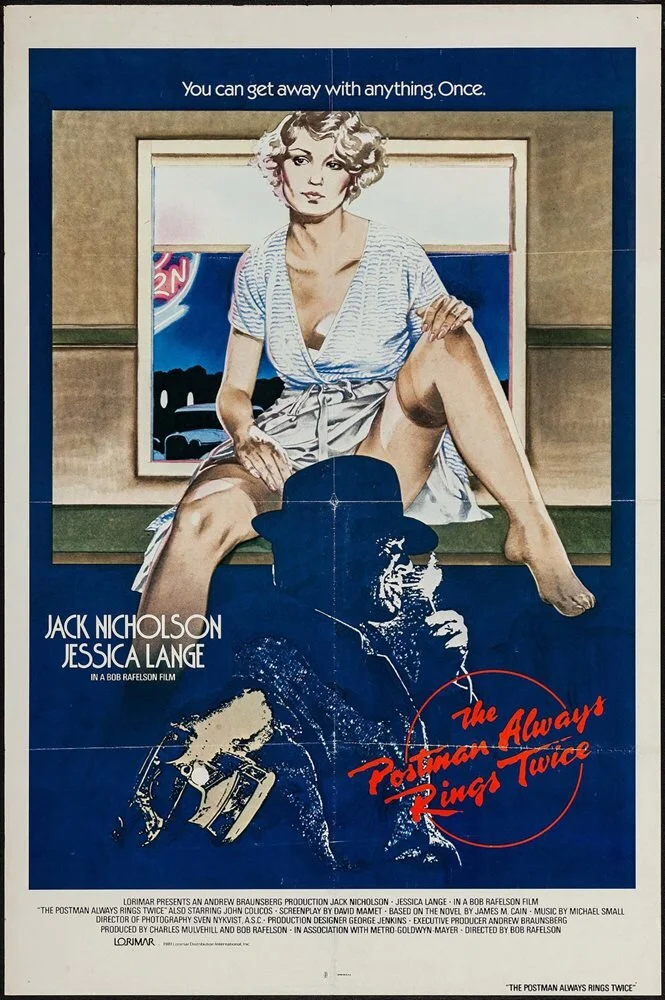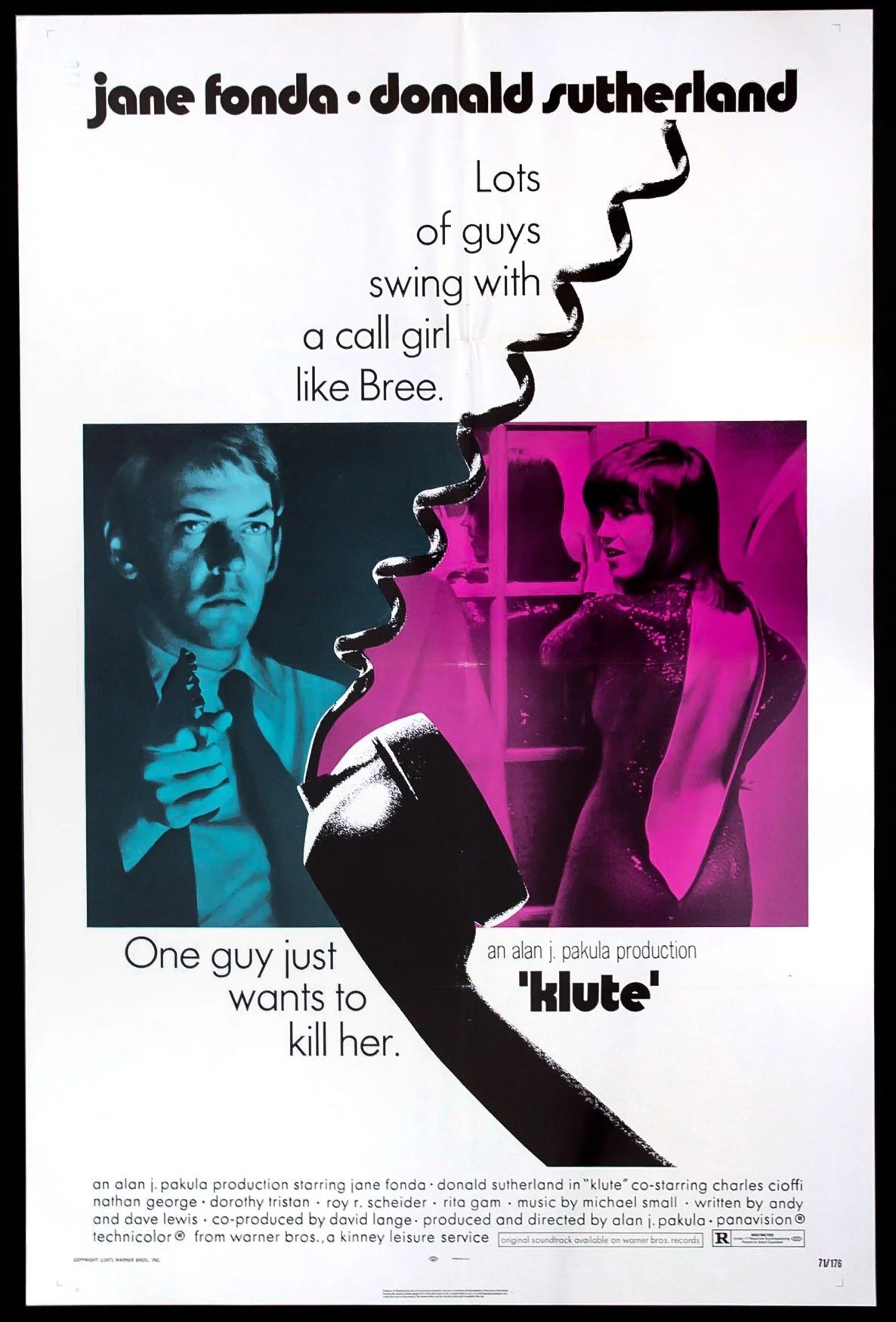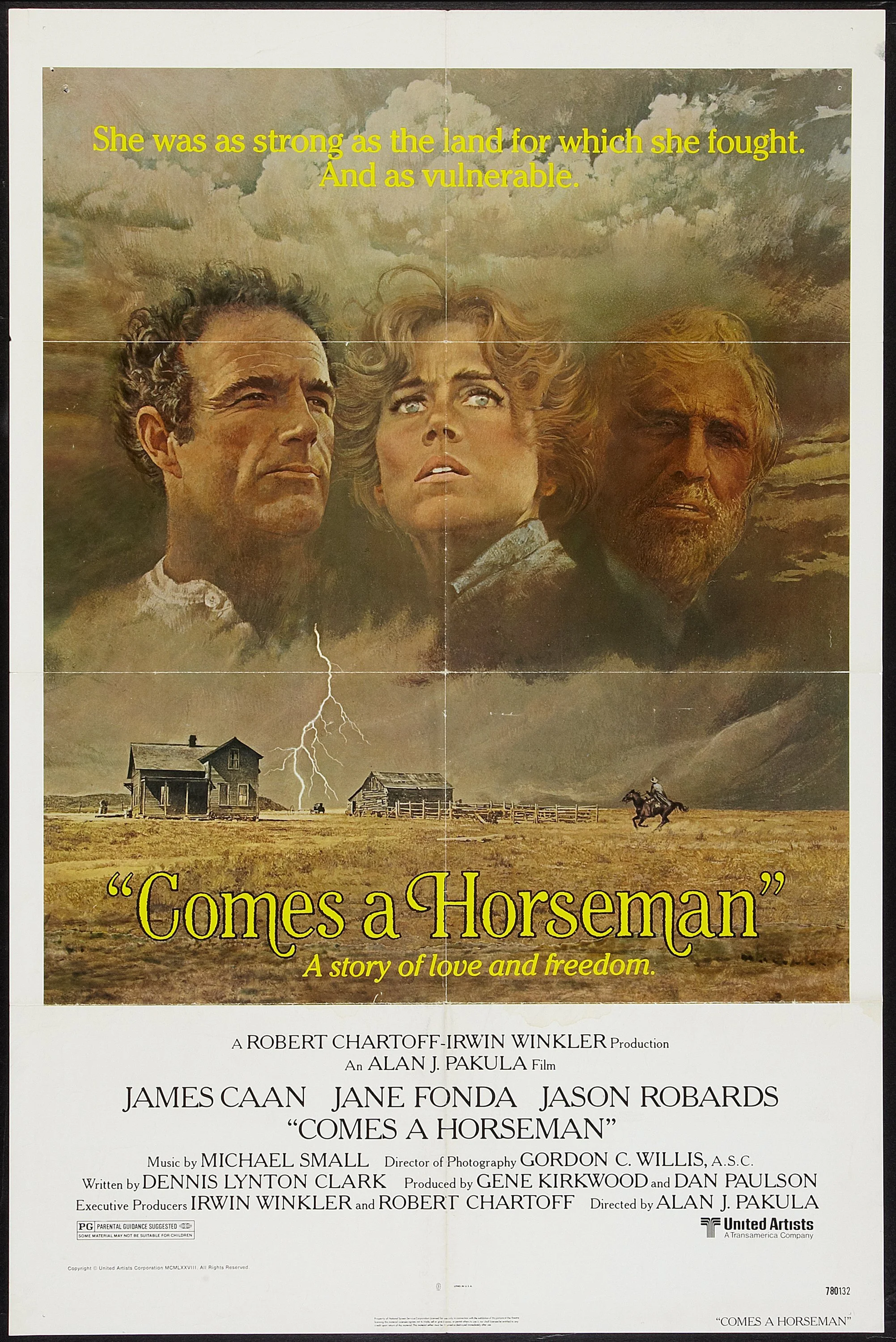Conducting Klute in 1971
“I try to come up with a concept that relates to the whole idea of the picture, rather than trying to just underscore dramatically each little moment,” composer Michael Small said in 1998. “My teacher in this regard is Alan Pakula, because when I did Klute, his expectation for the score was far beyond anything that I had attempted. He wanted the score to not only be a suspense score, but to underscore the psychology of the main character. Ever since that experience, I always look for that extra voice that a score can add to a film.”
Michael Small (1939-2003) is unquestionably best known for his paranoia thriller scores—Klute, The Parallax View, Marathon Man—and for good reason. He came on the scene at a time when suspicions of conspiracy haunted the United States, and in scoring some of the defining films of that fraught time, he was able to put the national mood into music.
Small bottled the uniquely 1970s feeling of distrusting government, of men in suits lurking in the shadows, of the pervasive but unpredictable threat of sudden assassination. He didn’t just conjure a shallow sense of unease or terror—he wrote music from a more complicated psychology of paranoia, of neuroticism, of soured patriotism.
But beyond the subgenre he helped shape, his great gift as a film composer was always finding a deeper reality or motivation, of getting inside characters’ minds and under their skin to turn out music that surprised while at the same time illuminating the story being told. As director Alan J. Pakula said of Small, “the music was really a co-dramatist of the film.”
“I try to come up with a concept that relates to the whole idea of the picture, rather than trying to just underscore dramatically each little moment. My teacher in this regard was Alan Pakula because when I did Klute, his expectation for the score was far beyond anything that I had attempted. He wanted the score to not only be a suspense score, but to underscore the psychology of the main character. Ever since that experience, I always look for that extra voice that a score can add to a film.”
